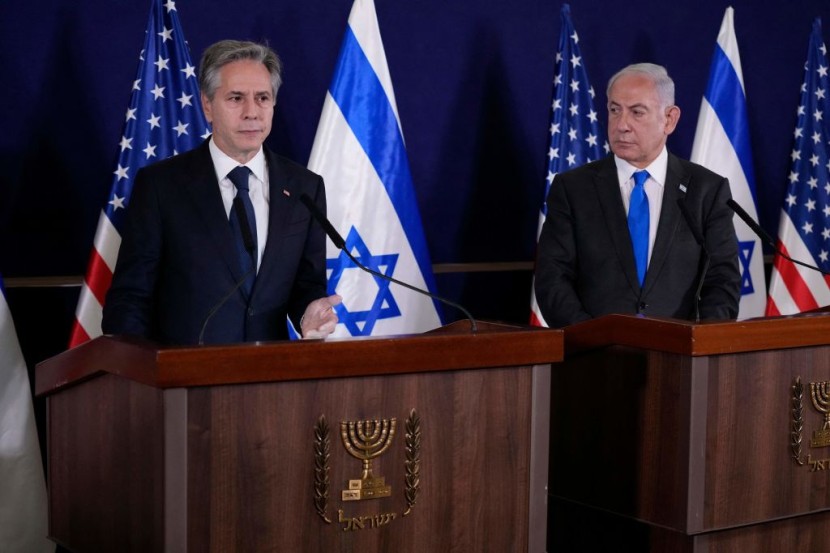Israeli Prime Minister Benjamin Netanyahu said on Friday (November 3) that his country would not consider applying the brakes on the war it has against Hamas, even after US Secretary of State Antony Blinken called for "humanitarian pauses" to allow civilians out of Gaza.
"[Israel] refuses a temporary cease-fire that doesn't include a return of our hostages," he told reporters, referring to over 200 people abducted by Hamas and other aligned fighters during their October 7 attack that also killed over 1,400 civilians.
The families of the Israeli hostages expressed the same sentiment.
"I think that with time, the pressure of our army is what will get the hostages freed," 23-year-old Ella ben Ami, whose parents were held captive in Gaza, told Politico. "We can't talk with Hamas like I'm talking with you. They only talk violence."
The remarks were made after a meeting with Blinken, who urged the leader to scale back its attack against Gaza to minimize Palestinian civilian deaths as Israel pursued Hamas jihadists hiding among the population in Gaza, the New York Post reported.
"Humanitarian pauses ... increase security for civilians and permit the more effective and sustained delivery of humanitarian assistance," Blinken said in a press conference on Friday. "We are focused on getting hostages back to their families and we believe a humanitarian pause could facilitate it."

Differences in Diplomacy
The differences in approaches between Washington and Tel Aviv have been subtly observed in the past few days since Israeli troops entered Gaza in an effort to encircle Hamas positions within Gaza City.
While Netanyahu and Israeli Defense Minister Yoav Gallant told Blinken that Israel was not interested in pursuing a pause in fighting, The US top diplomat said his country and Israel discussed ways to make a temporary stop more possible.
"A number of legitimate questions were raised by Israel including how to connect the pause to the release of hostages and how to make sure Hamas doesn't use these pauses to its own advantage," Blinken added. "These are issues we need to tackle urgently and we believe it can be solved."
The US has also been pushing Israel to allow humanitarian aid deliveries into Gaza, with Blinken saying during their meeting that officials "identified mechanisms to enable fuel to reach hospitals and other needs in the southern Gaza Strip."
However, Netanyahu insisted that Israel "won't allow entry of fuel to Gaza and objects to transfer of money to Gaza" despite Blinken's report.
"Israel raised [the] appropriate concern we share about Hamas hoarding fuel in northern Gaza," Blinken added.
© 2026 HNGN, All rights reserved. Do not reproduce without permission.







